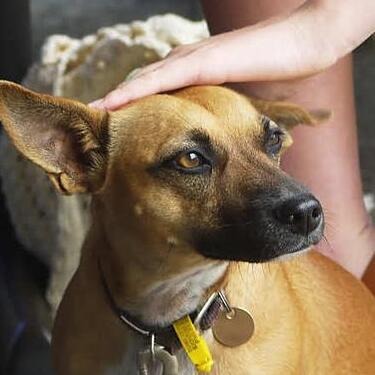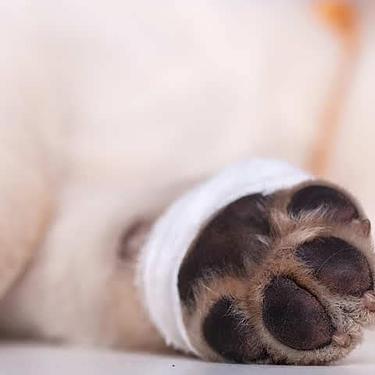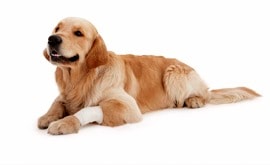
-
Find the right food for your petTake this quiz to see which food may be the best for your furry friend.Find the right food for your petTake this quiz to see which food may be the best for your furry friend.Featured products
 Hill's Science Diet Adult Oral Care Chicken, Brown Rice & Barley Recipe Dog Food
Hill's Science Diet Adult Oral Care Chicken, Brown Rice & Barley Recipe Dog FoodClinically proven kibble technology to reduce plaque & tartar build-up
Shop Now Adult Small & Mini Lamb Meal & Brown Rice Recipe Dog Food
Adult Small & Mini Lamb Meal & Brown Rice Recipe Dog FoodFor the faster metabolism of Small & Mini dogs
Shop Now Adult 7+ Small & Mini Chicken & Brown Rice Recipe Dog Food
Adult 7+ Small & Mini Chicken & Brown Rice Recipe Dog FoodFor the unique nutritional needs of mature Small & Mini dogs
Shop NowFeatured products Adult Indoor Chicken Recipe Cat Food
Adult Indoor Chicken Recipe Cat FoodSupports energy level and beautiful fur in indoor cats
Shop Now Adult Urinary Hairball Control Chicken & Rice Recipe Cat Food
Adult Urinary Hairball Control Chicken & Rice Recipe Cat FoodActively supports the health of the whole urinary system
Shop Now Hill's Science Diet Adult Sensitive Stomach & Skin Dog Food
Hill's Science Diet Adult Sensitive Stomach & Skin Dog FoodHighly digestible recipe, gentle on stomachs. Nourishes skin & promotes a lustrous coat
Shop Now -
Featured articles
 Easy DIY Dog & Cat Toys: Nine of Our Favorites
Easy DIY Dog & Cat Toys: Nine of Our FavoritesBrowse this comprehensive guide for several of our favorite DIY dog and cat toys that are sure to put a little pep in your pet's step.
Read More My Pet Ate a Lizard — What Should I Do?
My Pet Ate a Lizard — What Should I Do?Learn what to do if your pet eats a lizard, including whether they can be toxic and symptoms to keep an eye on when they've swallowed one.
Read More 15 Pet-Friendly Cities Ideal for a US Road Trip
15 Pet-Friendly Cities Ideal for a US Road TripCheck out our list of pet-friendly U.S. cities that are excellent travel options, offering off-leash dog parks and pet-friendly restaurants & hotels.
Read More -


Hopefully your dog will never seriously hurt himself, but having high energy levels, he's bound to get into a few scrapes now and then, so it's useful to have knowledge of basic first aid.
First Aid Box
You should always keep a few basic items on hand for emergencies such as: cotton bandages; cotton wool or lint to clean wounds; mild pet-friendly antiseptic to wash wounds; and a pair of tweezers for removing stings or objects from the mouth.
Bones, Sticks and Balls
Bones, sticks and balls can get lodged in or across the roof of a dog's mouth. If this happens, you may notice your dog pawing at his mouth or struggling to close his jaws. You may be able to remove the object by hand or with tweezers, but if not you'll need to get your vet to do so using sedation. As always, prevention is better than a cure, so never let your dog play with small balls and avoid throwing sticks.
Burns
If your dog suffers a burn from hot water, oil, chemicals or ice, he'll need immediate attention. Minor burns can be treated at home - simply clean the affected area with a mild antiseptic and apply a soothing cream or gel such as aloe vera. Severe burns will need veterinary attention, so take your dog to the vet straight away.
Cuts and Wounds
Dogs may suffer from cuts or wounds particularly to their feet if they run on something sharp like broken glass. If this occurs, clean the affected area with a disinfectant and apply a bandage if necessary. Consult your vet if you cannot stop the bleeding or the wound is severe.
Dog bites
If your dog is unlucky enough to be bitten by another dog, it's always worth getting him checked over by the vet. Make a routine appointment if the bite or bites are minor, and ensure your pet is seen as an emergency if they're severe. This approach should be taken with all animal bites. You should immediately call your vet if your suspect your dog has been bitten by a wild or stray animal to rule out servious diseases such as rabies.
Ear problems
Your dog's ears should be a shiny, pale pink color inside and free from wax or discharge. They should not smell unpleasant. If you suspect an ear problem always consult a vet.
Eye problems
If your dog has any problems with his eyes such as a scratch or conjunctivitis you should consult your vet, and if you can, prevent him from rubbing his eye.
Fits
A fit can be recognized by sudden, uncontrolled spasmodic movements, often with chomping of the jaw and salivating. A fitting dog will usually fall onto its side and be unaware of its surroundings.
If your dog does have a fit, try not to restrain him. Instead, remove any furniture or hard objects around him that could cause an injury. Then, turn off all stimuli such as lights, radio, television, washing machine etc. and darken the room so he can recover quietly. You should ALWAYS consult your vet if your dog has a fit.


Tasty Tips
Fractured or pulled-off claws
These can be very painful and tend to become quickly infected. Bleeding is also often profuse. If possible, try to apply a bandage to the foot before taking your dog to the vet as antibiotics are often required and the claw may need to be clipped back under sedation or anesthetic.
Heatstroke
The best advice as far as heatstroke is concerned is that prevention is better than a cure. Ensure your dog doesn't stay out in the sun for too long on hot days and avoids the midday heat.
If he does get mild heatstroke, cool him down as best you can with wet towels or a fan, and ensure he drinks plenty of cool water and gets lots of rest. Serious heatstroke will require the attention of a vet.
Lameness
If your dog is in obvious pain and can't put any weight on his leg, you should take him to your vet immediately as he may have a fracture or worse.
In less severe cases, look for damaged nails and check the pad for thorns, embedded grit or cuts.
Poisoning
Some dogs are very inquisitive, and there's always the possibility your dog will get hold of something he shouldn't. Much like heatstroke, prevention is better than a cure and you need to dog-proof your home to ensure he can't access things that could be harmful to his health, such as slug pellets, bleach or chocolate. If you suspect your dog has digested something harmful, always take the packaging to your vet as this will help identify the problem and source an antidote. If the worst does happen, see your vet as an emergency.
Vehicular Accidents
If your dog has been involved in an accident with a vehicle, you should call your vet right away. Your dog may be in shock and could react unpredictably so approach him with caution. If possible, lift your dog onto a blanket then take him to the vet as quickly as you can. If he cannot be moved, you may have to ask your vet to come directly to the scene.
Stings and Insect Bites
If your dog has been stung and has severe swelling around his mouth, nose or throat that's causing breathing difficulties, you should get him to a vet immediately.
If the sting or bite isn't causing any serious problems, you can alleviate your dog's discomfort by applying a cold compress to the affected area.
Hopefully your dog will never seriously hurt himself, but it never hurts to be prepared just in case. Much like with a child, it is always a good idea to keep a first aid kit at home to help clean and bandage wounds when necessary. If injured, try to keep your dog calm by talking to him in a soothing tone letting him know he'll be okay.


One of our staff authors prepared this article for you
Related products

For the faster metabolism of Small & Mini dogs

Clinically proven kibble technology to reduce plaque & tartar build-up

For the unique nutritional needs of mature Small & Mini dogs

Improves everyday ability to get up & go
Related articles

Discover how the field of dog science is giving us more and more insights into the inner workings of our furry best friends.

Understand the role that Omega-6 and Omega-3 fatty acids play in your dog's overall health, and how you can ensure they are getting enough.

Your dog's coat and skin are a big part of your dog's overall health. Ensure you keep your dog's coat healthy, by following these simple tips.

Learn basic steps & precautions for treating a cut on your dog, including what you can put on the cut, and when you should take them to the vet.

Put your dog on a diet without them knowing
Our low calorie formula helps you control your dog's weight. It's packed with high-quality protein for building lean muscles, and made with purposeful ingredients for a flavorful, nutritious meal. Clinically proven antioxidants, Vitamin C+E, help promote a healthy immune system.
Put your dog on a diet without them knowing
Our low calorie formula helps you control your dog's weight. It's packed with high-quality protein for building lean muscles, and made with purposeful ingredients for a flavorful, nutritious meal. Clinically proven antioxidants, Vitamin C+E, help promote a healthy immune system.


